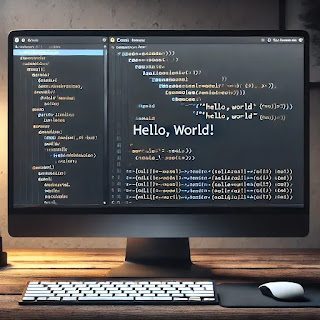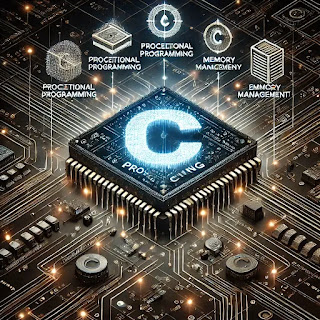C is one of the oldest programming languages still in use today, and it’s often referred to as the "mother" of modern programming languages. Despite the rise of newer languages like Python, Java, and JavaScript, C continues to be relevant for many developers, particularly those working in systems programming, embedded systems, and performance-critical applications.
Why Learn C in 2024?
While it may seem outdated, learning C is a great way to build a strong foundation in programming. Here are a few reasons why:
Understanding the Core of Computers
C allows you to work closely with memory management and low-level hardware interactions. This understanding can be crucial for more complex programming down the road, especially when dealing with optimization.Portable and Efficient
Programs written in C are highly portable and can run on almost any platform with little or no modification. C is also incredibly efficient, which is why it’s commonly used in system software and performance-critical applications.Foundation for Other Languages
Languages like C++, Objective-C, and even Java take many of their concepts from C. Understanding C can help you learn these languages more easily.Open Source Projects
Many popular open-source projects, including the Linux kernel and Python interpreter, are written in C. Being proficient in C allows you to contribute to these projects or understand them deeply.

Key Features of C
- Procedural Language: C follows a structured programming approach, which involves breaking the program into functions that make the code easier to understand and maintain.
- Low-Level Memory Access: Unlike many high-level languages, C gives developers direct access to memory through pointers, making it a powerful tool for system programming.
- Fast and Lightweight: C is known for its performance. It doesn’t include the overhead that comes with some high-level languages, making it perfect for writing fast, efficient code.
Real-World Applications of C
- Operating Systems: The UNIX operating system was developed in C, and many of its modern descendants like Linux continue to be heavily written in C.
- Embedded Systems: Due to its low-level hardware interaction capabilities, C is often used in embedded systems, from small devices to complex industrial machines.
- Game Development: While C++ is often favored for game development, C remains an essential part of game engines due to its high performance.
Getting Started with C
If you're new to C, here’s a simple program to get you started:
#include <stdio.h>
int main() {
printf("Hello, World!\n");
return 0;
}
This small program prints “Hello, World!” to the console, a classic example for beginners. To try it, you’ll need a C compiler like GCC or Clang.
Conclusion
C may not be as trendy as other languages in 2024, but its foundational role in the world of programming and its use in critical applications makes it a valuable language to learn. Whether you're aiming to become a systems developer or just want to deepen your understanding of computer science, C is a great place to start.


إرسال تعليق